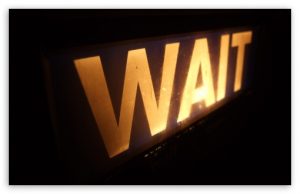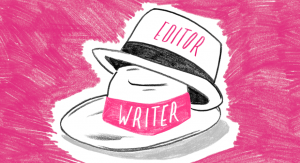It’s a sad fact (for me, anyway) that not all writers enjoy editing. It’s an integral part of the writing process, but as one of my writer clients puts it, ‘It’s like doing the dishes after a nice dinner.’ It can be tiresome, boring, uninteresting, painful (ever put your hand in boiling dishwater?) and can seem an anti-climatic end to the wonder that went before it.
In my years editing, I’ve seen nearly every reaction possible to the editing process. From the ever welcome ‘bring it on’ mindset to the less than enthusiastic groans of despair; from fighting every step of the way to refusing to open emails for fear of being emotionally wounded.
Self-editing doesn’t usually produce such extreme reactions, but it still asks the same thing of you that an editor would—to have an open mind. Your mindset, as a writer, is vitally important at this stage of the post-writing process.
By now, you might have completed your first draft and feel as though you’re ready to move onto what comes next. For many, this might lead to an inclination to seek out a publisher.
No manuscript is ever ready at the end of the first draft. And by no manuscript, I mean every manuscript. Let’s get that straight right now. I mean, well done for getting to the end of a draft, but if you’re looking to go pro your work is just beginning. It’s time to take off your writer hat and put on your editor hat.
Editing demands that you look at your work with fresh eyes, eyes that are not your own. It asks you to step outside of yourself, to detach, and see the story as an entity in its own right—not as an extension of yourself. This is probably one of the hardest things for any writer to do, some might even argue it’s impossible, but that’s no excuse not to try. Consider your mindset and try to apply these tips in your first self-editing phase.
Miracles don’t happen. Not for editing, anyway. You might go to bed and wish for your editing to be finished by little word-pixies in the night, but you’ll be disappointed in the morning. Accept the fact that editing is a time-consuming process that can take months and months. Traditional publishing, as a rule, moves pretty slow. Your manuscript needs to go through editing, design and production, printing and then it’s put into a release schedule where it may sit behind a number of other books. Have patience and commit to the process.
Rest your manuscript. Going straight from writing into editing is just plain nuts. If you’ve had your nose in a manuscript non-stop you need a rest. So does your story. The separation will help you see your story in a new light and with fresh eyes your editing will be more judicial. I can’t stress enough how beneficial this is to the editing process.
Review and revise goals. If you can’t separate yourself from your story, use the rest period to think about the future of your book now that you’re one step further along the path. What do you want your book to be? What do you want to be? Will you blog? Do appearances? Travel? Get into your next book? How will you position yourself? What is your long-term goal?
Plan your editing schedule. It’s just like your writing schedule. If you set aside a certain amount of hours per week to write, use those same hours to edit. Don’t edit when you’re tired, drunk, frustrated or operating heavy machinery. The results will be terrible.
Think of your reader. If your goal is to have your story read by perfect strangers, then you need to think about whether your story caters to their needs. Doesn’t matter what genre you write, if your language choices are out of date, cultural references make no sense or are just plain offensive, you’ll lose your readership. You need to have your readers in mind at all times. To give yourself a reader’s angle, print off your manuscript and read it aloud. You’ll notice things that don’t work when you look away from the screen.
Know yourself. This can be difficult if you’re thin-skinned. No one likes criticism, no one, and if you’ve written something very personal or representative of a controversial societal view, or employed techniques and styles that go beyond the norm, you can expect the third degree. If not from your editor or publisher, then from your readers. To be blunt, you need to find a way soothe the pain of attack and criticism. You must be able to answer any ‘why’ questions that come your way. Know yourself. Know your limitations. If you know that you absolutely cannot take any form of criticism but you want a wide readership, then you’re in strife. This is forewarning. Seek help for stress related conditions if you know you’re going to need it, and consider revising any passages that will lead to an undesired confrontation. Now is not the time for denial. Talk to someone who can help.
Start looking for a beta reader. If you have trouble with criticism this will be tough. You need at least one reader early on to offer feedback and advice. This can be a good exercise to help you learn how to toughen your skin, and may also provide a wealth of information about your manuscript that you may have missed. Beta readers often work on trade so if you’re asked to read their manuscript, do so. This will help your self-editing as you’ll see things that your opposite number missed, and as a wonderful knock-on effect, increase your own editing skills.
Don’t be too hard on yourself. I can’t stress this enough. You’re only human. Editing can make a writer feel really small, and it’s the same with self-editing, so cut yourself some slack and schedule plenty of down time. Get out of the house and go for a walk, play with the dog, see a movie or catch up with friends. Your manuscript will be there when you get back.
The next stage we’ll look at it is self-editing the elements of story structure. Don’t miss it!
Write on!

